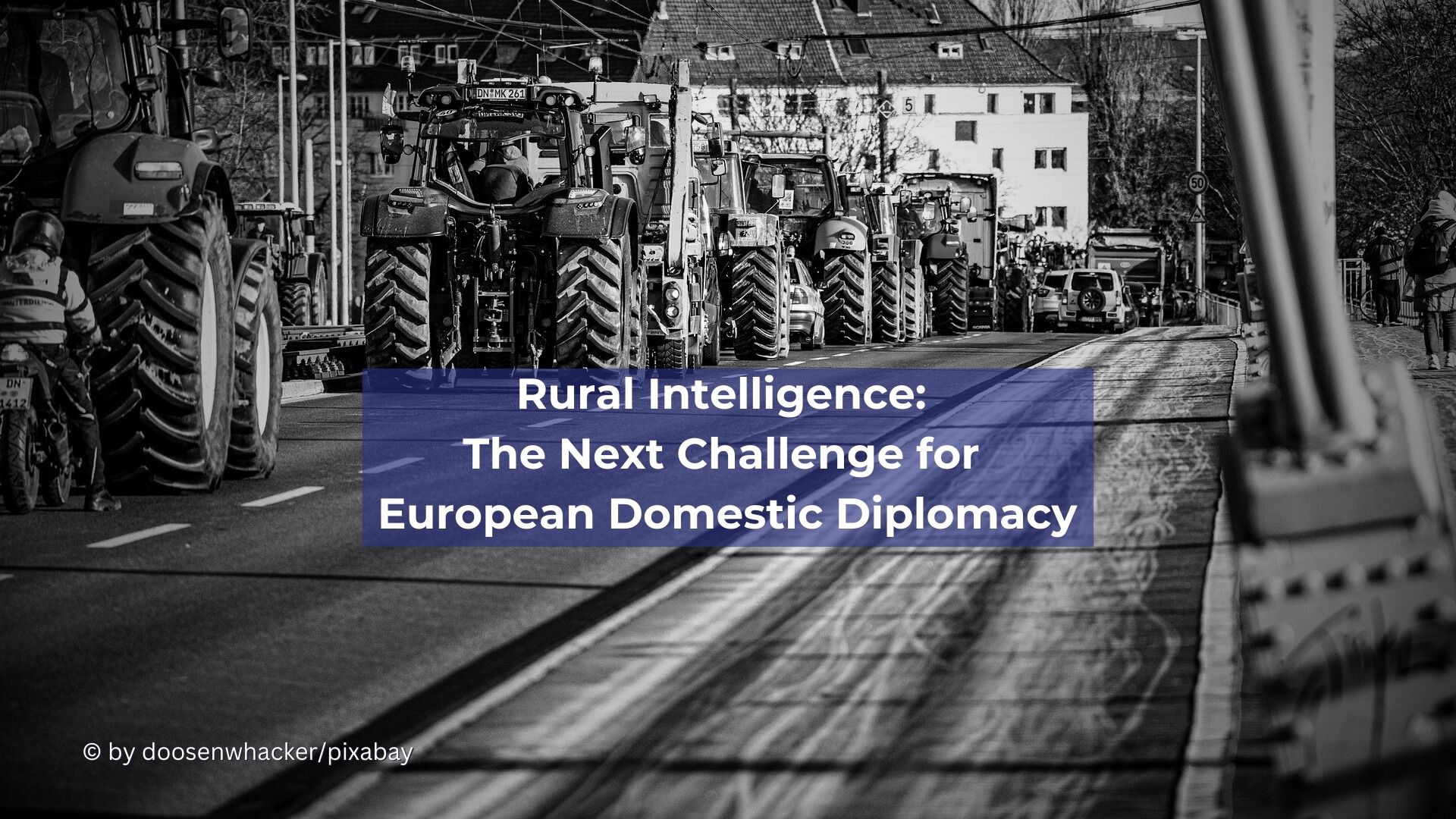Recent news from rural areas in the EU shows that places previously deemed hinterlands will make or break the bloc’s climate transition agenda. In March 2023, a new relatively new rural populist party, the “Farmer Citizen Movement”, won the provincial elections in the Netherlands running on a campaign that rejected EU laws requiring the agricultural sector to cut emissions. In February 2024, the EU passed a watered-down version of the Nature Restoration Law by a razor-thin margin following months of fierce opposition from the industrial agriculture lobby. And the start of 2024 has been marked by relentless protests by farmers across Europe.
Together, these events signal a coming storm of systemic risks to cohesion and stability in rural Europe, exposing a range of place-based conflicts of interest. European policymakers can no longer ignore the rural discontent that is brewing. To successfully implement Europe’s green transition and ensure the EU’s credibility as a global climate leader, Brussels must develop greater rural intelligence and place-based awareness.
Electoral maps of Europe exhibit sharp rural-urban divides when it comes to trust in government and satisfaction with democracy. A new report on Europe’s subnational regions concludes that “differences in living conditions and public services appear to be taking a toll on social capital, with rural residents feeling more that their role, and that of their communities, is not recognized by central governments.”
The challenge of steering subnational economies and societies through decarbonization and nature protection plans can overwhelm even the most willing and able subnational leaders. As political scientist Ivan Krastev put it in a conversation with the author, “People sense that we are distributing risk, not income.” This creates new forms of societal tension and division. Neighbors are suddenly pitted against each other as water managers clash with farmers, landowners with environmentalists, and wind turbine advocates with conservationists. Many of these conflicts come down to the question of how we renegotiate the best use of every square mile at a time of collapsing ecosystems, an energy transition that requires vast amounts of open land, and looming food scarcity.
Europe’s rural regions face the twin challenges of economic decarbonization and population loss—especially of the young and skilled. It is estimated that no fewer than 30 million people will have left rural areas between 1993 and 2033—equivalent to the current population of Romania, Bulgaria, and Lithuania combined. As a recent report by the European Committee of the Regions put it: “Those people remaining in rural areas easily feel left behind by local, national, and European institutions, while the climate crisis comes with risks to economies, tourism, and agriculture.” Worse, with fewer people living in these regions, many forest areas and water ecosystems are no longer being sustainably managed, resulting in increased impacts of extreme weather events and other climate stressors.
To draw public and policy attention to the issue, local and regional leaders gathered in Logroño, Spain in November 2023. Their main ask: EU climate policy must be made rural-proof, promoting the attractiveness of rural areas and protecting the quality of life of rural populations, while providing targeted support for these populations to adapt to the climate crisis and the green transition.
EU policymakers are slowly responding. In the first weeks of 2024, European Commission President Ursula von der Leyen held a dialogue with European Farmers. But to fully engage rural areas in EU policymaking and regional development in ways that speak to and benefit communities, more must be done. We must entirely rethink the place of rural areas in national, EU, and international policy. Cristina Gallach, the government official leading the 2030 Agenda implementation in Spain and long-time spokeswoman for former EU foreign policy chief and NATO Secretary General Javier Solana, said in speaking with the author that “the conversation in Brussels must include the subnational green transition experiences.”
To overcome this disconnect and close the gaps in information-sharing between local and international levels of policymaking, all EU institutions—in particular the European Council, the European Commission, and the European External Action Service (EEAS)—must develop place-based awareness and rural intelligence. They must build and nurture networks of contact, exchange, and leadership with rural European regions to anticipate, manage, and mitigate place-specific climate risks and socioeconomic conflicts. Much could be learned from the strategies diplomats and mediation teams use in hotspots of conflict and of deep transformation outside of Europe. Linking the EU’s Committee of the Regions to the European External Action Service (EEAS) could help in this effort. Leading climate city networks, such the European Covenant of Mayors for Climate and Energy, ICLEI—Local Governments for Sustainability, and C40 Cities, could also be enlisted to strengthen the urban-rural linkages that underlie effective multi-level policymaking.
The EU should consider introducing the notion of “rural diplomacy” into its domestic policy toolkit to address the complex mix of growing climate risks, biodiversity loss, economic decline, and sociopolitical backlash that marks Europe’s rural areas. Von der Leyen’s ongoing “strategic dialogue” with European farmers offers a chance to develop this notion in practice. It should include strategies to better engage and connect the hitherto separate spheres of EU governance where climate, agriculture, and regional development policy have been discussed over the past decades. In the long term, EU institutions and national governments may also think about how to incorporate the category “rural background” into their hiring process and diversity frameworks to ensure that people with a deeper understanding of these regions gain a greater voice in policymaking.
Investing more political capital and clout in rural areas will be one of the EU’s major domestic policy challenges in the coming years. Given its deep interlinkages with the EU’s climate and democracy challenges, rural intelligence should be developed fast and ambitiously.






